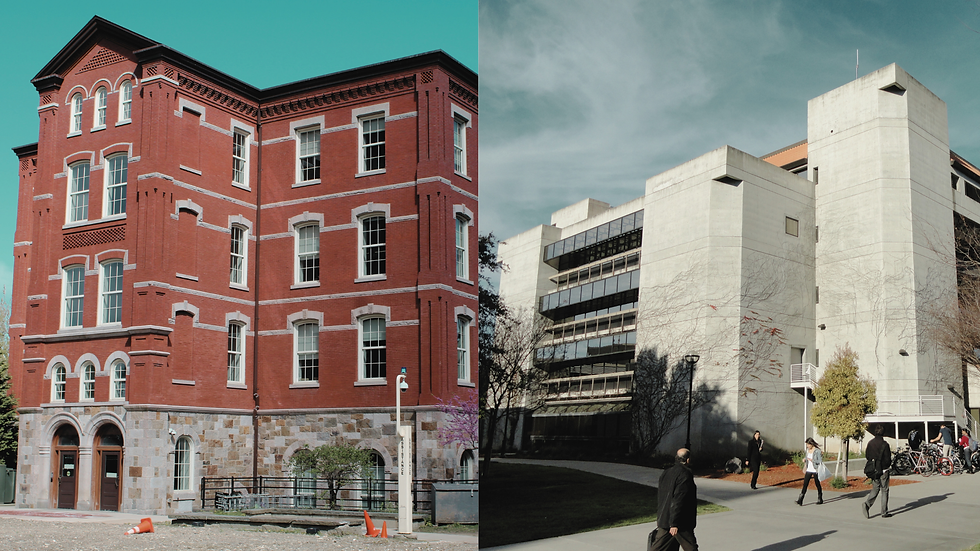Cameroon University Suspends Law Professor for Asking Legal Question in Class
- Ebby Abramson
- Jun 3, 2020
- 3 min read
Updated: Sep 1, 2022
On May 31, 2020, Endangered Scholars Worldwide learned that the University of Buea in Cameroon fired a law professor a month after he asked his students a legal question on an exam given for his political and constitutional history course. The test was part of the first semester examinations, which were held days before the school’s closure due to COVID-19 on March 17.

Felix Nkongho Agbor Balla, a law professor and former United Nations human rights officer, asked: “The Anglophone crisis since 2016 was caused by the lawyers’ and teachers’ strike. Assess the validity of this statement.”
The University of Buea is an English-speaking university in a predominantly French-speaking African region. On April 20, 2020, Cameroon’s higher education minister, Jacques Fame Ndongo, recommended in a written memo that the university’s Vice Chancellor Horace Manga suspend the Agbor Balla for “breaching the university’s code of ethics and conduct.”
Manga summoned Agbor Balla to appear before a university disciplinary council to answer questions about his course, “Political and Constitutional History of Cameroon,” and specifically about the question he asked on his exam.
On May 5, 2020, in a written response to the summons, Balla wrote, “Should I honor the said invitation, which is a manifest and gross violation of the law, it would amount to setting the wrong precedent, which would hurt and have a negative impact on teachers who in the future may be invited without any regard for due process to appear before the disciplinary panel and the long term credibility of our institution.”
The disciplinary council met on May 6, 2020, without Agbor Balla.
Professor Nol Alembong, deputy vice chancellor of Gee university, issued a statement that read in part: “Cognizant of Question 1 set on the course LAW entitled ‘Political and Constitutional History of Cameroon’ which violates Articles 40 and 42 of Decree N0. 93/027 of 19 January 1993, the contract of Felix Nkongho Agbor Balla, recruited as Instructor in the Department of Law . . . is hereby terminated with immediate effect.”
“Being invited to a disciplinary panel was a privilege Buea University accorded him on humanitarian grounds, since his contract had expired,” said Professor Ernest Litia Molua, registrar of the university. He continued, “The University of Buea extended to him a verbal gentleman collaboration, which he has finally abused by intoxicating 17 and 18 year old students on his political showmanship.” (Balla had been hired on a two-year contract in 2015 but based on a verbal agreement the university had allowed him to continue to teach.)
“I don’t discuss politics in the classroom. I believe this may just be a pretext to penalize me for human rights activism,” said Agbor Balla, founder of the Center for Human Rights and Democracy in Africa, and former leader of the outlawed Anglophone Civil Society Consortium.
Many Cameroonians believe the punishment against Agbor Balla was intended as a message to Anglophone intellectuals to watch what they think, say, do, or teach.
Pressing this point, the government has used military force to burn villages and kill unarmed civilians, bringing the once peaceful country to the brink of civil war. Hundreds have died and been displaced while activists—including Agbor Balla—have been jailed.
“If issues of Anglophone history and identity are barred from classroom analysis, the reasoning seems to go that younger generations of Anglophones will grow up without the full consciousness of their history and identity. This way, the consciousness that gave rise to the events of 2016 in Cameroon, and largely powered by youths, may be suppressed or significantly diminished,” said Menkefor.
“The university has never suppressed debate on the Anglophone problem,” said Molua. “The uproar about the examination question was raised by the students themselves when they left the examination hall, as they felt that Mr. Agbor Balla, the instructor could be biased in grading their answers , since he was a stakeholder and principal actor in the 2016 events he required the students to address and discuss.”
Endangered Scholars Worldwide deplores and condemns the dismissal of Felix Nkongho Agbor Balla and calls upon all international organizations, academic and professional associations, and other groups and individuals devoted to the promotion and defense of human rights to protest and condemn this verdict; and to urge the Cameroonian higher education to respect, guarantee, and implement the provisions and principles of human. We view the protection of academic freedom as a fundamental duty of all countries, and we urge the Cameroon government to respect and protect academic freedom, freedom of expression, and freedom of assembly in Cameroon.




